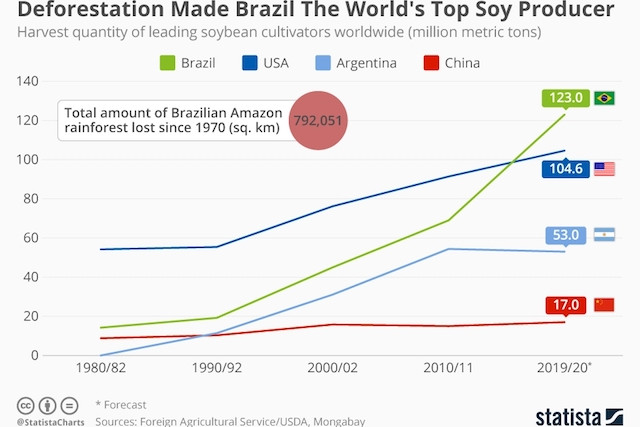Beef and soy are being blamed for many of the infernos as deforestation increases amid a heightened need for grazing land and areas for growing crops. Fire is used to dispose of the long-dry felled trees and vegetation while farmers also use it to clear and maintain land for agricultural use.
That has seen the level of both beef and soy production soar at the expense of Brazil’s rainforest. The country is now both the world’s biggest beef exporter and its largest soy producer.
In the early 1980s, Brazil harvested around 14 million metric tons of soy and production boomed due to the development of new cultivation techniques and the use of pesticides. The U.S. Department of Agriculture is now projecting a harvest of 123 million tons for 2019/20.
The drive for more land for cattle and soy that have resulted in wildfires could have profound implications for the planet. The Brazilian rainforest is home to around three million species of plants and animals and it plays a vital role in regulating global warming, absorbing millions of tons of CO2 emissions annually.
Website Mongabay states that more than 792,000 square kilometres of rainforest has been lost since 1970 and if this trend continues, it might prove impossible to keep global warming in check.
